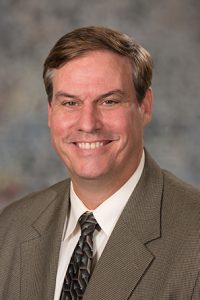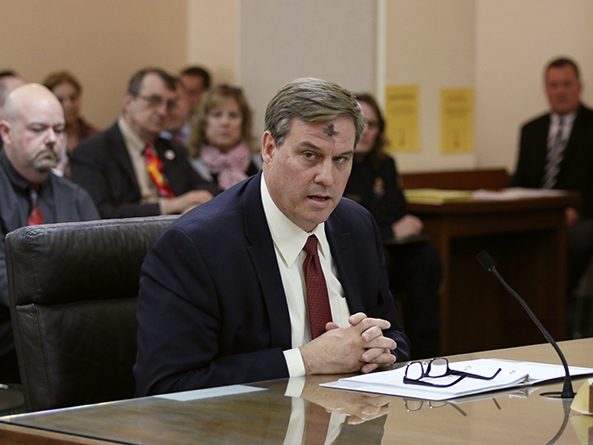Bill would expand authority for mental health professionals
Mental health professionals would have the same authority as law enforcement to place people in emergency protective custody under a bill heard by the Judiciary Committee Feb. 14.

Under LB964, introduced by Omaha Sen. Mike McDonnell, a mental health professional could take a mentally ill and dangerous person or a dangerous sex offender into emergency protective custody until commitment proceedings could be initiated if he or she believes the person may cause harm.
McDonnell said the bill would help avoid the criminalization of mental illness and allow for a smarter, more responsive solution to an already emotional situation.
“Having a police officer arrive at an already stressful situation, handcuff the person and transport them to a secure facility can make a situation even more traumatic,” McDonnell said. “If we can improve the process in just a few cases, it would be worth it.”
Levi Mohr, representing the Mental Health Action Team of Omaha Together One Community, spoke in favor of the bill. Mental health practitioners currently can do only so much to help people in crisis, he said.
“We have had patients who we felt were in the middle of a suicidal or homicidal crisis, but our pathways to care were limited,” Mohr said. “This tool would be an excellent way to advocate for our patients.
Also supporting the measure was Marilyn Rhoten, vice president of behavioral health services for CHI Health. Most emergency protective custody cases likely would still require law enforcement engagement, she said, but there may be instances where it is not necessary or helpful.
“Having trained mental health practitioners involved earlier in the process will improve outcomes,” Rhoten said. “We appreciate that many law enforcement agencies are pursuing additional crisis response training, but we already ask a lot of our officers every day.”
Opposing the bill was Melissa Lemmer, representing the Mental Health Association of Nebraska. Knowing that a therapist could initiate the emergency protective custody process would do considerable damage to the trust necessary in a therapy environment, she said.
“Just knowing that our provider could potentially take us into custody could change our therapeutic relationship,” Lemmer said. “Public safety is the job of law enforcement, but mental health providers are supposed to create a safe environment for us to heal and grow.”
The committee took no immediate action on the bill.


